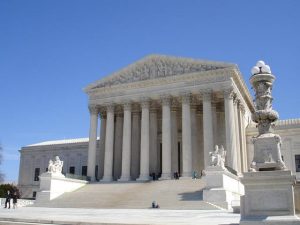Their employer wouldn’t let them sit down. So the employees stood up to them – in court. 
Walmart Inc. has agreed to pay $65 million to approximately 100,000 California cashiers – current and former – who allege the company broke the law in denying them a place to sit during work hours. Specifically at issue was Wage Order 7-2001 § 14(A), which specifically states all workers must be provided with suitable seats when the nature of their work reasonably allows it. The provision further states that if workers aren’t engaged in active duties of their employment and the nature of the work generally requires standing, the company is required to provide seats in reasonable proximity to the work space that workers can access whenever it doesn’t interfere with their work duties.
In Brown v. Walmart Inc., before the U.S. District Court, N.D. California, San Jose Division, it took nine years for a resolution that in the end, will not require the company to admit it did anything wrong. Still, it will have to pay the cashiers to whom it denied seating their share of the employment lawsuit settlement. Continue Reading ›
 Orange County Employment Lawyers Blog
Orange County Employment Lawyers Blog










